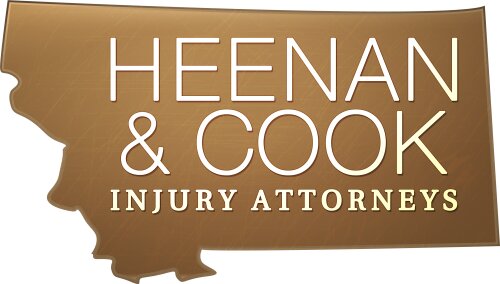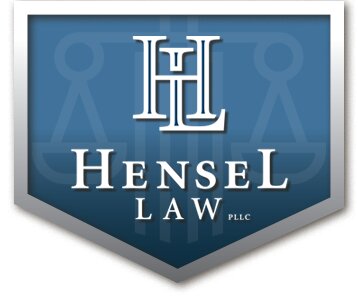Best Accidents & Injuries Lawyers in Billings
Share your needs with us, get contacted by law firms.
Free. Takes 2 min.
List of the best lawyers in Billings, United States
United States Accidents & Injuries Legal Articles
Browse our 1 legal article about Accidents & Injuries in United States written by expert lawyers.
- What to Do After a Serious Car Accident in the US: A Legal Step-by-Step Guide
- Call 911, get medical help, and do not admit fault. Photograph the scene, vehicles, and your injuries, and get witness names and the officer's report number. Report the crash to your insurer quickly. In no-fault states, PIP deadlines are short (e.g., Florida requires initial treatment within 14 days; New York... Read more →
1. About Accidents & Injuries Law in Billings, United States
Accidents and injuries law in Billings centers on pursuing compensation when negligent parties cause harm. Most cases involve auto crashes, slip and fall incidents, medical errors, or workplace injuries. Local residents typically work with Montana civil lawyers to navigate insurance claims, settlements, and court actions in state courts.
In Montana, personal injury claims hinge on proving fault, damages, and a valid link between the defendant’s conduct and the injury. Damages can include medical expenses, lost wages, out-of-pocket costs, and non economic losses like pain and suffering. Billings residents often file cases in state court, with the Montana Code guiding timelines and standards across the state. Understanding these fundamentals helps individuals decide whether to seek legal counsel.
Key fact: Personal injury actions in Montana generally follow a three year statute of limitations from the date of injury.Source: Montana Legislature
For guidance, consult official state resources and local counsel. Montana law emphasizes a blend of fault allocation, insurance requirements, and procedural rules that shape every personal injury claim. This guide points to jurisdiction-specific details that matter in Billings and Yellowstone County.
2. Why You May Need a Lawyer
Below are real world scenarios in Billings that commonly lead people to seek legal help in Accidents & Injuries matters. Each example reflects practical considerations unique to the Billings area.
- Car crash on I 90 near Billings with serious injuries and disputed fault. Insurance adjusters may assert comparative fault or question medical causation.
- Pedestrian collision in downtown Billings where the driver fled or disputed who caused the incident. A lawyer helps preserve evidence and pursue UM/UIM coverage if applicable.
- Slip and fall at a Billings retail store with hidden hazards like wet floors. A lawyer can evaluate premises liability and collect surveillance footage.
- Medical malpractice at a Billings health system such as Billings Clinic or a local hospital where timelines, expert opinions, and complex causation are involved.
- Workplace injury at a construction site or industrial facility in the Billings area, raising questions about workers compensation vs third party liability.
- Product liability case involving a defective consumer item used in a home in Billings, requiring technical testimony and product defect analysis.
In these scenarios, a lawyer helps by collecting essential records, assessing insurance coverage, identifying all potentially responsible parties, and negotiating settlements or pursuing court action. An attorney with local experience can explain how Montana rules apply to your specific Billings situation and ensure timely action.
3. Local Laws Overview
Montana law governs most Accidents & Injuries claims in Billings. The following concepts are central to most cases in this jurisdiction:
- Statute of limitations for personal injury - In Montana, most personal injury claims must be filed within a fixed period after the injury. This limit affects when you can bring a lawsuit and can impact cases that involve delayed discovery of an injury.
- Modified comparative negligence - Montana follows a fault based framework where liability can be assigned to multiple parties. A claimant’s recovery may be reduced by their own percentage of fault, and if fault exceeds a threshold, recovery may be barred.
- Financial responsibility for auto insurance - Drivers must maintain required liability coverage to meet financial responsibility obligations in auto related accidents. This impacts how damages are paid and what insurance assets may be available to cover injuries.
Montana statute of limitations for personal injury is generally three years, with discovery rules applying in some situations.Source: Montana Legislature
For those pursuing cases in Billings, these statutes and rules are interpreted by Montana state courts and applied by local attorneys. If your case involves medical care, premises safety, or motor vehicle accidents, consult a solicitor who can explain how these facts interact with Montana law.
Note: Local Billings practice often involves presenting cases to Montana state courts and utilizing Yellowstone County resources. Official guidance from the Montana Legislature and Montana Judicial Branch provides the framework for these claims. Visit official sources for precise statutory language and any recent updates.
4. Frequently Asked Questions
What is a personal injury claim in Montana?
A personal injury claim seeks compensation for injuries caused by someone else’s negligence. It usually involves medical bills, lost income, and pain and suffering. You file the claim with the at fault party’s insurer or in court if needed.
How do I start a lawsuit after a car crash in Billings?
Begin by gathering police reports, medical records, and witness contacts. Contact a local attorney who can assess liability, confirm applicable insurance, and file a complaint within the statute of limitations.
What is the statute of limitations for personal injuries in Montana?
In most cases, you have three years from the date of injury to file a personal injury lawsuit. Discovery rules may affect when the clock starts in some circumstances.
When should I hire a Billings personal injury attorney?
Consider hiring soon after the incident to preserve evidence and avoid delays. Early legal help helps manage medical records, insurance communications, and potential settlement strategies.
Do I need to prove fault in a Montana injury case?
Yes. Montana uses fault based liability rules. You must show that another party acted negligently and that this negligence caused your injuries.
What is the difference between a settlement and a lawsuit?
A settlement is a negotiated agreement before trial. A lawsuit proceeds to court if the parties cannot agree on compensation, and a judge or jury determines liability and damages.
How much can I expect to be compensated for pain and suffering?
Damages for pain and suffering vary widely by case. A lawyer helps quantify non economic damages, considering factors like injury severity and impact on daily life.
Do I need to prove the other party’s intent or only negligence?
Generally, you must prove negligence rather than intentional harm. Intent is not required to recover typical personal injury damages.
Is there a difference between auto accident claims and premises liability claims?
Yes. Auto accidents often involve insurance coverage and fault assignment, while premises liability centers on property owner duty of care and hazards on site.
What evidence is most helpful to my injury case?
Medical records, police reports, photos of the scene, witness statements, and correspondence with insurers are all crucial. Preserve documents promptly after the incident.
Can I handle a sudden injury claim without an attorney?
You can, but a lawyer improves the odds of full recovery. An attorney helps with medical lien issues, settlement offers, and complex negotiations.
5. Additional Resources
- Montana Legislature - Official site for the Montana Code and legislative updates. Use this resource to review statutes related to civil actions and personal injury claims. https://leg.mt.gov
- Montana Judicial Branch - State courts, jury instructions, and case law guidance relevant to Accidents & Injuries claims. https://courts.mt.gov
- U S Occupational Safety and Health Administration (OSHA) - Federal safety standards and enforcement information for workplace injuries. https://www.osha.gov
6. Next Steps
- Document the incident promptly. Gather police reports, medical records, photographs, and insurance information within 1 week if possible.
- Identify potential liability parties. List drivers, property owners, manufacturers, or employers who may share responsibility.
- Consult a local Billings personal injury attorney. Schedule initial consultations within 2-3 weeks to assess viability and strategy.
- Ask about fees and case economics. Confirm whether the attorney works on a contingency basis and what expenses may be charged.
- Request a case assessment and a written plan. Understand expected timelines, evidence needs, and possible settlement ranges.
- If pursuing litigation, prepare a timeline. Your attorney will file within the statute of limitations and manage discovery steps.
- Make informed decisions about settlement offers. Rely on your attorney to evaluate offers against medical needs and long term goals.
Lawzana helps you find the best lawyers and law firms in Billings through a curated and pre-screened list of qualified legal professionals. Our platform offers rankings and detailed profiles of attorneys and law firms, allowing you to compare based on practice areas, including Accidents & Injuries, experience, and client feedback.
Each profile includes a description of the firm's areas of practice, client reviews, team members and partners, year of establishment, spoken languages, office locations, contact information, social media presence, and any published articles or resources. Most firms on our platform speak English and are experienced in both local and international legal matters.
Get a quote from top-rated law firms in Billings, United States — quickly, securely, and without unnecessary hassle.
Disclaimer:
The information provided on this page is for general informational purposes only and does not constitute legal advice. While we strive to ensure the accuracy and relevance of the content, legal information may change over time, and interpretations of the law can vary. You should always consult with a qualified legal professional for advice specific to your situation.
We disclaim all liability for actions taken or not taken based on the content of this page. If you believe any information is incorrect or outdated, please contact us, and we will review and update it where appropriate.
Browse accidents & injuries law firms by service in Billings, United States
Billings, United States Attorneys in related practice areas.










